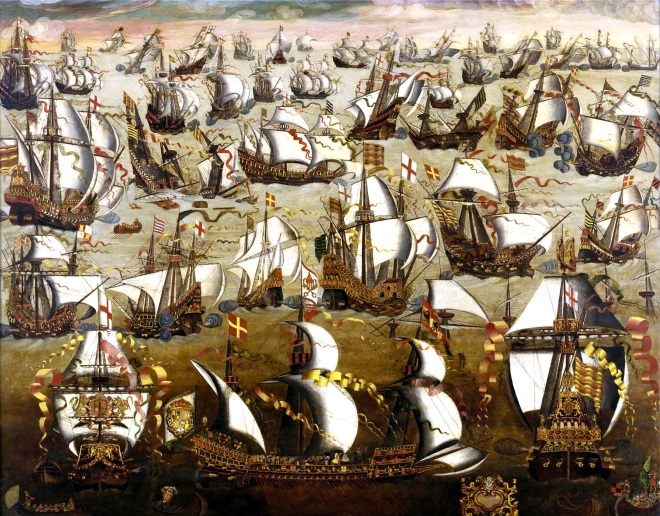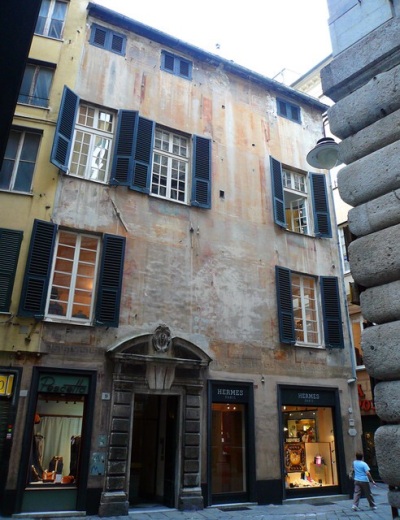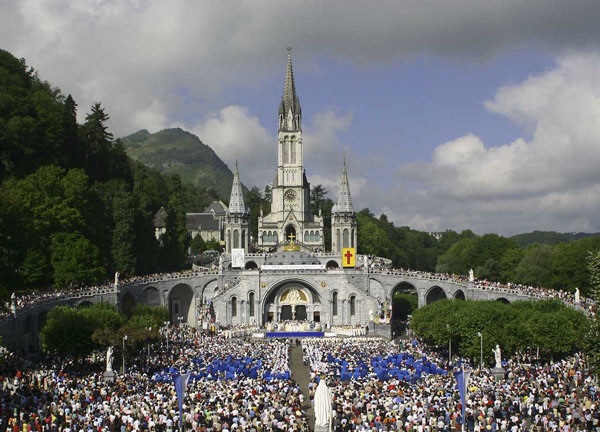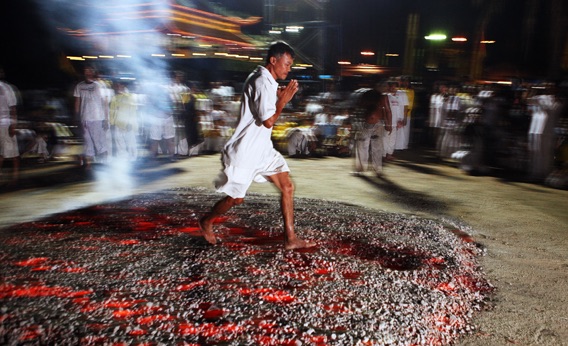Bangkok, 2 July 2015
There’s been quite a bit of brouhaha in the press about the new Encyclical which Pope Francis brought out on 18 June, with the title “Laudato Si’: On Care for Our Common Home”. Normally, I would just read what the press has to say and move on. Although I come out of the Catholic tradition, I fell off the Straight- and-Narrow decades ago and it never occurred to me to read any of the Encyclicals brought out by Paul VI or John-Paul II, and certainly none by Benedict XVI, who always struck me as a complete dinosaur. I remember my father reading the Encyclicals, in the original Latin no less (his was probably the last generation of Europeans who were given a serious education in classics; he read Latin and Greek at University). But me, no way, I wasn’t going to read these letters by old, white, celibate men, most of whose views were diametrically opposite mine.
But this Encyclical was different. It was about avoiding a planetary ecological disaster, brought about by climate change and other environmental catastrophes, something which I’ve been wrestling with all my professional life. And it was different from the kind of work I do, which is technical and scientific. It was bringing ethics to bear on the problem, which have been sadly lacking. So I decided that it was time for me to try this rather special form of literature.
Here’s how the Encyclical starts:
- “Laudato si’, mi’ Signore” – “Praise be to you, my Lord”. In the words of this beautiful canticle, Saint Francis of Assisi reminds us that our common home is like a sister with whom we share our life and a beautiful mother who opens her arms to embrace us. “Praise be to you, my Lord, through our Sister, Mother Earth, who sustains and governs us, and who produces various fruit with coloured flowers and herbs”.
- This sister now cries out to us because of the harm we have inflicted on her by our irresponsible use and abuse of the goods with which God has endowed her. We have come to see ourselves as her lords and masters, entitled to plunder her at will. The violence present in our hearts, wounded by sin, is also reflected in the symptoms of sickness evident in the soil, in the water, in the air and in all forms of life. This is why the earth herself, burdened and laid waste, is among the most abandoned and maltreated of our poor; she “groans in travail” (Rom 8:22). We have forgotten that we ourselves are dust of the earth (cf. Gen 2:7); our very bodies are made up of her elements, we breathe her air and we receive life and refreshment from her waters.
Whoa! Stirring words, pretty different from the stuff I normally read. Thoroughly intrigued, I settled down to read the whole document, all 246 paragraphs of it. Allow me to rapidly summarize its contents for any of my readers who might be too busy or distracted by other things to read it (by the way, the Encyclical has a message for them: “true wisdom, as the fruit of self-examination, dialogue and generous encounter between persons, is not acquired by a mere accumulation of data which eventually leads to overload and confusion, a sort of mental pollution”).
After a review of the state of the planetary environment, whose conclusion can be summed up in this other punchy quote, “the earth, our home, is beginning to look more and more like an immense pile of filth”, the Pope reminds us that our inability to look after our Earth is reflected in our inability to look after our poor: “we should be particularly indignant at the enormous inequalities in our midst, whereby we continue to tolerate some considering themselves more worthy than others. We fail to see that some are mired in desperate and degrading poverty, with no way out, while others have not the faintest idea of what to do with their possessions, vainly showing off their supposed superiority and leaving behind them so much waste which, if it were the case everywhere, would destroy the planet”, to conclude that “a true ecological approach always becomes a social approach; it must integrate questions of justice in debates on the environment, so as to hear both the cry of the earth and the cry of the poor.”
His main conclusion is that both the environmental ills of the planet as well as the ills which bedevil our societies have their roots in excessive consumption by the better-off amongst us.
- “We all know that it is not possible to sustain the present level of consumption in developed countries and wealthier sectors of society, where the habit of wasting and discarding has reached unprecedented levels.”
- “To blame population growth instead of extreme and selective consumerism on the part of some, is one way of refusing to face the issues. It is an attempt to legitimize the present model of distribution, where a minority believes that it has the right to consume in a way which can never be universalized, since the planet could not even contain the waste products of such consumption.”
- “… poor countries … need to acknowledge the scandalous level of consumption in some privileged sectors of their population and to combat corruption more effectively.”
- “We may well be leaving to coming generations debris, desolation and filth. The pace of consumption, waste and environmental change has so stretched the planet’s capacity that our contemporary lifestyle, unsustainable as it is, can only precipitate catastrophes, such as those which even now periodically occur in different areas of the world.”
- “.. given the insatiable and irresponsible growth produced over many decades, we need also to think of containing growth by setting some reasonable limits and even retracing our steps before it is too late.”
- “… a world of exacerbated consumption is at the same time a world which mistreats life in all its forms.”
All music to my ears! For ten years now, I’ve seen that excessive consumption is the key to all our most intractable environmental problems and have been wrestling with what to do about it. We have to do something to reduce the levels of consumption in the richest countries, or more specifically among the world’s richest people (because as the Pope pointed out even the poor countries have hideously rich people).
But to have this happen is a huge, huge political problem. To explain why, let me borrow a photo or two from the photographer Peter Menzel and others who have copied him. Mr. Menzel went around the world photographing families outside their homes with all their stuff piled up around them (anyone wanting to see the whole series should dip into his book “Material World: A Global Family Portrait”). His idea proved so popular that others copied him. This photo, which is of a family in Inner Mongolia

shows a level of stuff-ownership which is typical of millions, if not billions, of families around the world. These families want a materially better life. And why not? There is no reason they should not have it. But if the goal of every family in the world is to end up like this one

– well, it’s simply not possible, because a lifestyle like this for everyone requires a level of consumption of the world’s resources that would need 4 or more Earths to sustain

and, except for those of us who live in a parallel universe, we all know that there is but one planet.
But it’s also not possible to have a world where a few families can live like kings while everyone else has to live like the huddled masses or else the planet goes into meltdown. Somehow, those who currently are over-consuming have to accept to reduce their consumption.
What kind of material sacrifice would be required of these over-consumers? To answer this question, let me use myself as an example. A little while back, curious to see how large my personal environmental footprint might be, I used a footprint calculator offered by the Environmental Protection Agency of the State of Victoria in Australia (there are a number of such calculators on-line; I chose this one because it’s easy to use and I reckon that Southern Australia’s climate is quite similar to Italy’s where I intend to retire – I couldn’t find a good Italian footprint calculator). With an eye to my upcoming retirement, I entered data for myself and my wife on our eating habits, on the home we will live in, and the modes of transport we will be using. To put it in a nutshell, the two of us will live in a 120 sq. metre apartment in an apartment block, whose electricity will partially come from renewable energy. We’ll be having several servings a day of dairy, eggs, fish, or meat products, and a quarter of the food that we’ll eat will be either processed, packaged, or imported. Since we’ll be recycling a lot we’ll throw away less than one 30 litre bin-bag of waste a week. We’ll be using a lot of public transportation, but we’ll still have a small car to potter around town a bit, while twice a year we’ll fly to see the kids in the States. I pushed the last button, and the answer came back … “If everyone lived like you, we would need 3.9 planets” Aarrgh!!!! I was one of those guys greedily overusing the Earth’s resources! I could NOT believe it! I had worked in the environmental field all my professional life, and yet here I was devouring the planet! O-M-G!!
Once the shock wore off, I started doing what scientists call sensitivity analysis: I changed my answers one at a time, to see which changes would give me the biggest reductions. That would give me a menu of changes to our lifestyles which we could adopt, with the goal of bringing that horrible figure of 3.9 down to 1.0 – I think it’s OK to have a lifestyle which, were everyone to have it, would use only 1 planet’s worth of resources.
I won’t weary my readers with a full summary of the results, let me just give the highlights. The biggest reduction in my levels of planetary destruction comes from changes in diet. Having only a few servings a week of dairy, eggs, fish, or meat products, instead of several a day, cuts 1 full planet out of my footprint. That’s great, I knew that meat-eating especially is terribly harmful to the environment. I think we can switch to a strongly vegetarian diet without too much difficulty.
So that’s already 1.0 planet’s worth of reduction.
The other big reduction, though, 1.1 planets’ worth, comes from basically cutting out air travel. No, no, this is not possible, we cannot stop visiting our children! And we can’t just tell the kids to come instead, that would be foisting onto them part of our footprint! What to do? I suppose we could cut our trips to once a year … Alright, let’s say that, so that’s half a planet’s worth of reduction.
That gives us a running total of 1.5 planets’ worth of reduction.
The next biggest reduction, 0.7 planet’s worth, would come if we switched from living in a multi-storey apartment building to a free-standing house without running water. OK, we’re not going to cut off our water, but my take-away here is that saving water has a significant impact on the size of my footprint. We can’t stop drinking, but we’ll ruthlessly chop at our three other big water uses, hot showers, clothes washing, and toilet flushing. We’ll simply shower less, wash our clothes less often, and (ugh!) flush less often. Let’s clock that in at 0.35 planet’s worth.
So, the running total is now 1.85 planets’ worth of reduction.
Next on my list is to switch to a green design residence, which would give me half a planet’s worth of reduction. Well, we can’t change apartments at this point. But we can do things to make the apartment more energy efficient: compact fluorescent bulbs (although they will look totally hideous in the chandelier we have in the living room), double-glazed windows everywhere (more costs …), if possible more insulation on that wall in our bedroom, … I don’t know, there must be other things we can do. Let’s just assume that there are and clock this in at 0.25 planet’s worth.
That gives me a running total of 2.1 planets’ worth of reduction.
What else?
Well, next on the list is simply to cut off the electricity to the apartment, which would give me another half a planet’s worth of reduction. Well, that ain’t gonna happen … But we could reduce our consumption of electricity. The CFLs I’ve already decided to install will help here, as will the reductions in the use of the washing machine. We can mostly wash our dishes by hand, which will reduce the use of the dishwasher (which will also help reduce water use). We could unplug all those gadgets with pilot lights so they aren’t on all the time. I promise not to leave the lights on after leaving a room (a bad habit I have). We could climb the stairs rather than use the elevator (which will be good exercise anyway). I don’t know if they offer this in Italy, but if they do I could ask to have all my electricity booked as coming from renewable energy…. OK, let’s assume 0.25 planet’s worth for all this.
Running total: 2.35 planets’ worth of reduction.
I’m running out of options here, and I still need to chop 0.55 planet’s worth out of our lifestyle!
OK, we can switch to riding bicycles around town and walking even more, so as to reduce our use of public transportation (I have us hardly using a car). Maybe we could squeeze another 0.2 planet’s worth out of our lifestyle in this way.
Running total: 2.55 planets’ worth of reduction.
Let me see, what else? … I’m really scraping the bottom of the barrel here … Well, we could have a third person come and live with us. I choose this option with extreme reluctance. One of the kids would be ideal, but they probably have no desire to come and live with their parents. And anyway, they would need a job in Italy, which in this economic climate is not at all a given. Maybe we could take in a student, preferably one who is studying environmental sciences and who would enthusiastically join in the hunt for things to do to reduce our footprint. One more person in the apartment would give us 0.3 planet’s worth of reduction.
That gives us a grand total of 2.85 planets’ worth of reduction, close enough to the goal of 2.9.
That was hard, really hard! I’m making big sacrifices here. I don’t think eating much more greens will be that bad, but not being able to see the children more than once a year, that will be tough. And having to share the apartment with a stranger does not fill me with joy at all.
And therein lies the huge political problem. This all sounds like an intense diet, and as we all know diets are not greeted with joy but with mournful suffering. Who wants to do them? We need to flip this, we need to make people like me feel happy as they merrily throw out of their lives the mountain of stuff that surrounds them.
This is where the rest of Pope Francis’s Encyclical comes in. In the case of Catholics, it’s easy. He’s telling them that it is their moral duty to change their lifestyles, and he strongly suggests this to other Christians too. But to the others amongst us who are not Christians? I can do no better than quote another chunk of text:
We need to take up an ancient lesson, found in different religious traditions and also in the Bible. It is the conviction that “less is more”. A constant flood of new consumer goods can baffle the heart and prevent us from cherishing each thing and each moment. To be serenely present to each reality, however small it may be, opens us to much greater horizons of understanding and personal fulfilment. Christian spirituality proposes a growth marked by moderation and the capacity to be happy with little. It is a return to that simplicity which allows us to stop and appreciate the small things, to be grateful for the opportunities which life affords us, to be spiritually detached from what we possess, and not to succumb to sadness for what we lack. This implies avoiding the dynamic of dominion and the mere accumulation of pleasures.
Such sobriety, when lived freely and consciously, is liberating. It is not a lesser life or one lived with less intensity. On the contrary, it is a way of living life to the full. In reality, those who enjoy more and live better each moment are those who have given up dipping here and there, always on the look-out for what they do not have. They experience what it means to appreciate each person and each thing, learning familiarity with the simplest things and how to enjoy them. So they are able to shed unsatisfied needs, reducing their obsessiveness and weariness. Even living on little, they can live a lot, above all when they cultivate other pleasures and find satisfaction in fraternal encounters, in service, in developing their gifts, in music and art, in contact with nature, in prayer. Happiness means knowing how to limit some needs which only diminish us, and being open to the many different possibilities which life can offer.
We need to start a huge campaign to persuade people of the rightness of the message “less is more”, and to have them actively wanting to drastically reduce their material needs, of feeling bad, almost sick, if they start accumulating too much. If we don’t change this basic mindset we are doomed. As the Encyclical so rightly says, there is no technical solution to climate change and other severe global environmental problems, there is only an ethical choice.
I hope this piece can be one small part of this campaign.
___________
Inner Mongolian family: http://fast.mediamatic.nl/f/sjnh/image/146/188097-500-400.jpg
Developed country family’s stuff: http://akkermanlc.weebly.com/uploads/1/2/7/5/12751216/4773841_orig.png (in http://akkermanlc.weebly.com/quality-of-life-project.html)
Four planets: http://image.slidesharecdn.com/foodinasustainablematerialfootprint-131011032957-phpapp01/95/food-in-sustainable-consumption-2-638.jpg?cb=1381463878 (in http://www.slideshare.net/lettenmeier/food-in-sustainable-consumption)












































































